How to GO From BSN to Nurse Practitioner + Best Programs
Written By: Kasee Wiesen
 Kasee Wiesen DNP, APRN, FNP-C
Kasee Wiesen DNP, APRN, FNP-CKasee Wiesen is a practicing family nurse practitioner. Her nursing background includes emergency medicine, pediatrics and peri-op. She started her health career as a nurse’s aid while pursuing her bachelor’s in nursing degree in a hospital setting. Education is a passion of Kasee’s, and after working as a BSN prepared nursed, she obtained in master’s in nursing education and began teaching adjunct for a local university. Read Full Bio »» DNP, APRN, FNP-C

Nurse practitioners are an essential piece of the healthcare system—they help meet the growing demands to ensure that people’s healthcare needs are met. And due to this, there is an increased demand for nurse practitioners as they provide high-quality care in both urban and rural communities.
Are you currently a registered nurse with a BSN considering a career as an advanced practice nurse? Or in 4-year nursing school with goals to continue your education? If you answered yes to either of these questions, becoming an NP may be a perfect fit! So, how do you go from BSN to NP? Below, I will provide information on how to transition from BSN to nurse practitioner as well as details about the 20 best BSN-to-NP programs in the nation.
Can You Transition Straight From BSN to Nurse Practitioner?
Some NP programs will accept you right after graduation from a BSN program and passing the NCLEX. Other NP programs will require you to practice as a BSN-prepared nurse for a minimum of 1-2 years before being able to apply.
6 Advantages of Transitioning From BSN to NP
There are many advantages to transitioning from a BSN to NP. Below, I list six of these advantages but for more specifics please click here.
1. Better pay
2. Flourishing job outlook
3. Increased flexibility
4. Increased autonomy and responsibility
5. Opportunity to specialize
6. Increased job satisfaction
3 Disadvantages of Transitioning From BSN to NP
While there are many advantages to transitioning from a BSN to NP, there are a few disadvantages too. Below, you will find three disadvantages of transitioning from a BSN to NP.
1. More School—to become a nurse practitioner, you must return to School to complete an MSN or DNP.
2. The increased cost of education—The need for additional education leads to an increased cost of education. However, once you become an NP, your salary will increase, which will help offset the cost of School.
3. Increased legal responsibilities—becoming a nurse practitioner does come with increased legal responsibilities, which is why it is essential to maximize your time in School, specifically clinical experiences, to prepare you better. Also, have resources you can reference once you start your practice.
What is the Step-By-Step Process to Transition From BSN to NP?
The following is a step-by-step process to transition from a BSN to NP.
1. Graduate from an accredited BSN program
2. Pass NCLEX and obtain RN licensure
3. Gain RN experience—this step is optional but strongly encouraged
4. Identify the NP specialty you want to pursue
5. Apply to the NP programs(s) of your choice
6. Attend and graduate from NP school
7. Apply to NP jobs
8. Pass the board certification exam
9. Enjoy your new career as an NP!
What are Two Paths to Transition From BSN to NP?
Below you will find information about the two pathways available to transition from BSN to nurse practitioner.
BSN-To-MSN NP:
One path to take is going from a BSN to a master of science in nursing (MSN) NP degree. The MSN focuses on medical skills and providing healthcare to the population.BSN-To-DNP NP:
The second path is going from a BSN to a doctor of nursing practice (DNP) NP. This degree combines what you learn from an MSN program with an additional focus on leadership, research, and applying research into practice.How Long Does It Take to Transition From BSN to Nurse Practitioner?
Below you will find information about the amount of time it takes to transition from BSN to nurse practitioner.
BSN-To-MSN NP:
A BSN to MSN NP program, on average, takes 2-3 years, depending on the status and school you attend.BSN-To-DNP NP:
A BSN to DNP NP program typically takes 3-4 years, based on the status and school you attend.How Much Does It Cost to Transition From BSN to Nurse Practitioner?
Below you will find information about the cost to transition from BSN to nurse practitioner.
BSN To MSN-NP:
The average cost to transition from BSN to MSN-NP is $81,810 to $185,280.BSN To DNP-NP:
The average cost to transition from BSN to DNP-NP is $26,490 to $254,260.*The cost is dependent upon multiple factors including the school selected and if you attend part-time or full-time.
What are the 5 Best Online MSN Programs to Transition From BSN to Nurse Practitioner?
Below you will find the 5 best online BSN to MSN programs to transition from BSN to nurse practitioner.1. University of South Carolina - Columbia, SC
Specialties Offered:
Adult-Gerontology Acute Care Nurse Practitioner, Family Nurse Practitioner, and Psychiatric Mental Health Nurse Practitioner
Program Details:
The University of South Carolina offers an MSN degree with a clinical concentration in Adult-Gerontology Acute Care, Family, and Psychiatric Mental Health. The majority of the classes are offered online but you should expect to go to campus for on-campus immersion sessions throughout the program.The adult-gerontology acute care NP program is 46 credit hours, 672 clinical hours, and takes 8 semesters. The family NP and psychiatric mental health NP programs are 47 credit hours, 672 clinical hours, and take 8 semesters to complete.
U.S. News and World Reports considers all three programs as some of the best online graduate programs for nurses.
Admission Requirements:
The admission requirements for the three programs are very similar. You must have graduated from a BSN program with a minimum of a 3.0 GPA and have transcripts sent to the school. An active RN license and a minimum of 1-year experience is also required. Lastly, you must also submit a resume, professional references, personal statement, and BLS certification. Additionally, the adult-gerontology acute care NP program also requires an active ACLE certification.2. The Ohio State University - Columbus, OH
Specialties Offered:
Psychiatric Mental Health Nurse Practitioner, Neonatal Nurse Practitioner, and Family Nurse Practitioner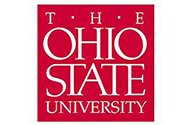
Program Details:
Ohio State University offers some of the best BSN to Nurse Practitioner programs with clinical concentrations in psychiatric mental health, neonatal, and family health. The family nurse practitioner program is offered both on-campus and online but the other specializations are offered only online.Each program requires a different amount of credit hours—psychiatric mental health NP program is 63 credit hours, neonatal NP program is 54 credit hours and family NP is 62 credit hours. There are 8 courses that make up the MSN core curriculum that all students must take including Evidenced-Based Nursing Scholarship, Advanced Health Assessment and Pathophysiology.
Admission Requirements:
Applicants must have graduated from an accredited BSN program with a minimum 3.0 GPA. Other requirements include active RN license; official transcripts; resume; purpose and goals statement; video interview; and three letters of recommendation.3. Duke University - Durham, NC
Specialties Offered:
Adult-Gerontology Nurse Practitioner – Acute Care, Adult-Gerontology Nurse Practitioner – Primary Care, Family Nurse Practitioner, Neonatal Nurse Practitioner, Pediatric Nurse Practitioner – Acute Care, Pediatric Nurse Practitioner – Primary Care, Psychiatric Mental Health Nurse Practitioner, and Women’s Health Nurse Practitioner
Program Details:
Duke University offers many highly ranked BSN to Nurse Practitioner programs that follow a distance-based format. Majority of these programs are also ranked by the U.S. News and Report indicating these programs do an excellent job of preparing NP students for the workforce.The adult-gerontology primary care NP program requires 42 credit hours and 560 clinical hours. The adult-gerontology acute care NP program requires 48 credit hours and 728 clinical hours and the family NP program requires 49 credit hours and 728 clinical hours. The neonatal, pediatric acute care and pediatric primary care NP programs require 43 credit hours and 616 clinical hours. Lastly, the psychiatric mental health NP program requires 49 credit hours and 616 clinical hours and women’s health NP program requires 45 credit hours and 672 clinical hours.
Please note that the Women’s health NP program is the only women’s health program in North Carolina.
Admission Requirements:
For majority of the programs, you must graduate from an accredited BSN program with a minimum of a 3.0 GPA. You must also submit a resume, personal statement, and three professional recommendations. Your official transcripts must be sent and you must also hold an active RN license. A couple of programs have more specific recommendations:• Adult-Gerontology Acute Care NP: 1 year of nursing experience and active ACLS certification
• Neonatal: 2 years of full-time clinical practice experiences within the last 5 years as an RN who cared for critically ill neonates and infants in critical care settings. Must also have a current neonatal resuscitation provider and BLS
• Pediatric Nurse Practitioner Acute Care: A minimum of 1-year experience in acute care pediatric setting. Also, hold an active PALS certification.
• Pediatric Nurse Practitioner Primary Care: Highly recommend, but not required, at least 1 year of pediatric nursing experience. BLS certification is required and PALS is encouraged.
4. The Catholic University of America - Washington, DC
Specialties Offered:
Family Nurse Practitioner (FNP), Pediatric-Dual Acute & Primary Care (PNP-AC & PC), Pediatric Primary Care PNP-PC, and Adult-Gerontological Primary Care (AGNP-PC)
Program Details:
The Catholic University of America offers four different BSN to Nurse Practitioner programs—including one of the only pediatric-dual acute and primary care NP programs.The family nurse practitioner, pediatric primary care NP, and dual primary and acute pediatric nurse practitioner programs are 47 credit hours, while the adult-gerontology primary care NP program is 48 credit hours.
On average all 4 programs take 2 years to complete with the family nurse practitioner and dual primary and acute pediatric nurse practitioner being offered 100% online. There are 11 courses that make up the MSN core curriculum including Pharmacology for Advanced Nursing Practice, Pathophysiology, Advanced Health Assessment and Health Promotion.
Admission Requirements:
Applicants must have graduated from a BSN-accredited program with a minimum of 3.2 GPA. An active RN license, resume, and letters of recommendation are required. Must also include a personal statement and an academic writing sample or publication. Lastly, 1-2 years of nursing experience is recommended. A few programs have specific requirements:• Dual Primary and Acute Care PNP Program: PALS certification and one year experience in a pediatric acute care setting.
5. Saint Xavier University - Chicago, IL
Specialties Offered:
Family Nurse Practitioner (FNP)
Program Details:
The University of Saint Xavier University in Chicago offers one of the top BSN to MSN Nurse Practitioner programs with a specialty in family medicine. The family nurse practitioner program is considered one of the best online graduate nursing programs by several reputed publications. The program offered online is 47 credits and will take approximately 3 years to complete. A two-day on-campus intensive will be required in the second and third years of the program. The curriculum trains you in the care of patients across the lifespan and focuses on health promotion and disease prevention.Admission Requirements:
You must have an active RN license and applications are only being accepted from Illinois, northwest Indiana, and southern Wisconsin. You must also have graduated from an accredited BSN program and have official transcripts sent directly to the University. Three professional recommendations, a personal statement, and a resume are required. You may be asked to complete an interview with faculty or provide this interview in a writing sample. One year of RN experience is also required.What are the 5 Best Online DNP Programs to Transition From BSN to Nurse Practitioner?
Below you will find the 5 best online BSN to DNP programs to transition from BSN to nurse practitioner.1. Rush University - Chicago, IL
Specialties Offered:
Adult-Gerontology Primary Care Nurse Practitioner, Family Nurse Practitioner, Neonatal Nurse Practitioner, Acute Care Pediatric Nurse Practitioner, Primary Care Pediatric Nurse Practitioner, Psychiatric-Mental Health Nurse Practitioner, and Adult-Gerontology Acute Care Nurse Practitioner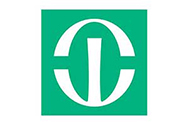
Program Details:
Rush University offers many BSN to Nurse Practitioner (DNP) programs—adult-gerontology primary care and acute care nurse practitioner, family nurse practitioner, neonatal nurse practitioner, acute care and primary care pediatric nurse practitioner, and psychiatric-mental health nurse practitioner. Majority of the programs offer part-time and full-time options taking approximately 2 to 3.5 years to complete. The acute care pediatric NP, psychiatric-mental health NP, neonatal NP and primary care pediatric NP programs are 68 credit hours and the family NP, adult-gerontology acute care NP and adult-gerontology primary care NP programs are 71 credit hours.The courses are offered either in a hybrid or online format but it is important to note that in the Hybrid format—75% of didactic coursework is delivered online with the remainder provided on-campus. Each program contains core graduate nurse courses and 14 credits dedicated to DNP core courses.
Admission Requirements:
Graduation from an accredited BSN program with a minimum 3.0 GPA. Official transcripts sent to Rush University along with a resume and three letters of recommendation. You must have an active RN license and submit responses to essay questions.2. Johns Hopkins University - Baltimore, MD
Specialties Offered:
Adult-Gerontological Acute Care NP, Adult-Gerontological Primary Care NP, Family Primary Care NP, Pediatric Primary Care NP, Pediatric Dual Primary/Acute Care NP, and Psychiatric Mental Health NP
Program Details:
John Hopkins University offers a variety of BSN to Nurse Practitioner programs. The adult gerontology acute care NP and adult-gerontology primary care NP are 78 credit hours, 784 clinical hours, and 224 DNP practicum hours. The family NP and pediatric primary care NP programs are 81 credit hours, 784 clinical hours, and 224 DNP practicum hours. The dual pediatric primary and acute care NP programs is 88 credit hours, 784 clinical hours, and 224 DNP practicum hours. And lastly, they offer a psychiatric mental health NP program that is 84 clinical hours, 896 clinical hours, and 224 DNP practicum hours.Majority of these programs are delivered in a hybrid setting and most programs are completed within 3 or 4 years. It is also important to note that John Hopkins University offers one of the only dual pediatric primary and acute care NP programs. The psychiatric mental health NP program is one of the top-ranked DNP programs at Johns Hopkins University.
Admission Requirements:
Must have graduated with a BSN from an accredited program with a minimum 3.0 GPA and have official transcripts sent to John Hopkins University. An active RN license is required along with 3 letters of recommendation, a goal statement, and an interview. It is strongly recommended you have a minimum of 1 year of RN experience—but this is not required.3. Duke University - Durham, NC
Specialties Offered:
Adult-Gerontology Nurse Practitioner – Acute Care, Adult-Gerontology Nurse Practitioner – Primary Care, Family Nurse Practitioner, Neonatal Nurse Practitioner, Pediatric Nurse Practitioner – Acute Care, Pediatric Nurse Practitioner – Primary Care, Psychiatric Mental Health Nurse Practitioner, and Women’s Health Nurse Practitioner
Program Details:
Duke University offers many BSN to Nurse Practitioner programs including pediatrics, family practice, psychiatric mental health, and women’s health. Each of these programs does have the option to complete as a BSN to DNP—please see above when I discussed each MSN NP program.In regards to the DNP program, it will add a minimum of 4 additional semesters or 35 credits on top of your commitment to the MSN program. You must also complete a DNP scholarly project.
Admission Requirements:
For majority of the programs, you must graduate from an accredited BSN program with a minimum of a 3.0 GPA. You must also submit a resume, personal statement, and three professional letters of recommendation. Your official transcripts must be sent and you should hold an active RN license. A couple of programs have more specific recommendations:• Adult-Gerontology Acute Care NP: 1 year of nursing experience and active ACLS certification
• Neonatal: 2 years of full-time clinical practice experiences within the last 5 years as an RN who cared for critically ill neonates and infants in critical care settings. Must also have a current neonatal resuscitation provider and BLS
• Pediatric Nurse Practitioner Acute Care: A minimum of 1-year experience in acute care pediatric setting. Also, active PALS certification.
• Pediatric Nurse Practitioner Primary Care: Highly recommend, but not required, at least 1 year of pediatric nursing experience. BLS certification is required and PALS is encouraged.
4. University of Utah - Salt Lake City, UT
Specialties Offered:
Neonatal Nurse Practitioner, Primary Care Nurse Practitioner, Psychiatric/Mental Health Nurse Practitioner, and Women's Health Nurse Practitioner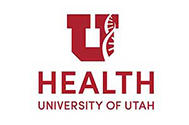
Program Details:
University of Utah offers four different BSN to nurse practitioner (DNP) tracks for the aspiring nurse practitioner. The neonatal NP program is 77 credit hours and the women’s health NP program is 80 credit hours. The psychiatric mental health NP program is 84 credit hours and the primary care NP program is 83 credit hours.These programs can be completed in 3 years including 2 summers. It is important to note that the program starts once a year in the fall.
Admission Requirements:
You must have graduated from an accredited BSN program with a minimum of a 3.0 GPA. Your official transcripts must be sent along with your resume, goal statement, and three letters of recommendation. You must also have an active RN license and the college recommends at least 1 year of RN experience prior to enrollment. A couple of programs also have specific admission requirements including the Neonatal NP program requiring 2 years of full-time clinical experience (within 5 years of application) as an RN caring for critically ill neonates and infants in the inpatient setting.5. The Ohio State University - Columbus, OH
Specialties Offered:
Family Nurse Practitioner, Neonatal Nurse Practitioner, and Psychiatric Mental Health Nurse Practitioner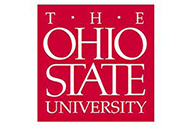
Program Details:
The Ohio State University offers three BSN to Nurse Practitioner (DNP) programs and each program has a different requirement regarding credit hours. The psychiatric mental health NP program requires 87 credit hours, the neonatal NP program requires 78 credit hours and the FNP program requires 86 credit hours.Each program can be completed within 4 years. Also note, that each of these programs will include DNP clinical expert coursework along with the requirements needed to become an advanced practice nurse. The last two years will include the completion of DNP immersive and final project.
Admission Requirements:
Graduation from an accredited BSN program with a minimum 3.0 GPA. Active RN license; official transcripts; resume; purpose and goals statement; video interview; three letters of recommendation.What are the 5 Best On-Campus MSN Programs to Transition From BSN to Nurse Practitioner?
Below you will find the 5 best on-campus BSN to MSN programs to transition from BSN to nurse practitioner.1. University of Pennsylvania - Philadelphia, PA
Specialties Offered:
Adult-Gerontology Acute Care Nurse Practitioner, Adult-Gerontology Primary Care Nurse Practitioner, Family Nurse Practitioner, Neonatal Nurse Practitioner, Pediatric Acute Care Nurse Practitioner, Pediatric Primary Care Nurse Practitioner, Psychiatric-Mental Health Nurse Practitioner, and Women’s Health/Gender-Related Nurse Practitioner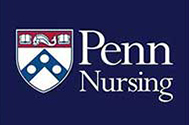
Program Details:
The University of Pennsylvania offers many on-campus BSN to MSN nurse practitioner programs. Each of these BSN to MSN NP programs requires a different number of credit hours. The adult-gerontology acute care NP program is 42 credit hours, while the adult-gerontology primary care NP program is 50 credit hours. The FNP program is 58 credit hours, the neonatal NP program is 44 credit hours, and the pediatric primary care NP program is 38 credit hours. The psychiatric mental health NP program is 70 credit hours and the women’s health/gender-related NP program is 57 credit hours.Each of these programs offers a full-time and part-time study plan. Majority of the programs will also help match you with your preceptor. The instructors in most of the programs are also currently in practice—and all faculty members for the FNP program are currently in practice as an APRN.
2. University of California-San Francisco - San Francisco, CA
Specialties Offered:
Adult-Gerontology Acute Care Nurse Practitioner (AG ACNP), Adult-Gerontology Primary Care Nurse Practitioner (AGPCNP), Nurse-Midwifery/Women's Health Nurse Practitioner (CNM/WHNP), Family Nurse Practitioner (FNP), Pediatric Nurse Practitioner-Acute Care (PNP-AC), Pediatric Nurse Practitioner — Primary Care (PNP-PC), Psychiatric/Mental Health Nurse Practitioner (PMHNP), and Neonatal Nursing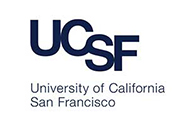
Program Details:
The University of California-San Francisco offers many BSN to NP programs including women’s health, psychiatric/mental health, and both adult and pediatric programs. Each program will take approximately 2 years to complete when attending full-time but there are part-time options for most programs.There are graduate core courses and clinical core courses for the MSN students. These courses are required by all MSN students and are accompanied by courses that are specific to the NP specialty selected.
*It is important to note that as of 2023 this program will no longer be offered.
Admission Requirements:
Graduation from an accredited BSN program along with official transcripts and a minimum 3.0 GPA. Goal statement, personal history statement, recommendations, resume, and possible interview are also required. A college-level statistics course must be completed within 5 years of application. A few programs have specific recommendations too:• Adult-Gerontology Primary Care: 2 years of experience as an RN caring for the adult patient
• Adult-Gerontology Acute Care: 1 year or more of relevant clinical experience as an RN based on the specialty selected.
• Family Nurse Practitioner: 2 years of RN experience with an intention to work in primary care is preferred.
• Neonatal: 2 or more years of RN experience caring for neonates
• Pediatric Acute Care: 1 year of experience as an RN caring for pediatric patients in the acute care setting.
3. Case Western Reserve University - Cleveland, OH
Specialties Offered:
Adult-Gerontology Acute Care Nurse Practitioner, Adult-Gerontology Primary Care Nurse Practitioner, Family Nurse Practitioner (FNP), Family Systems Psychiatric Mental Health Nursing, Neonatal Nurse Practitioner (NNP), Pediatric Nurse Practitioner (PNP), Pediatric Nurse Practitioner in Acute Care, and Women's Health Nurse Practitioner (WHNP)
Program Details:
There are eight BSN to NP programs offered by the Case Western Reserve University. Each program does require a different amount of credit hours:• Adult-gerontology acute care NP: 39 credit hours and 700 clinical hours
• Adult-gerontology primary care NP: 41 credit hours and 600 clinical hours
• Family nurse practitioner: 40 credit hours and 600 clinical hours
• Family systems psychiatric mental health NP: 45 credit hours and 720 clinical hours
• Neonatal NP program: 40 credit hours and 700 clinical hours
• Pediatric NP program: 40 credit hours and 600 clinical hours
• Pediatric acute care NP program: 45 credit hours and 600 clinical hours
• Women’s Health NP program: 38 credit hours and 600 clinical hours
Most of these programs are completed within 4 semesters and are either a hybrid or primarily online format—majority are distance-friendly programs with short required visits to the Cleveland campus. It is also possible to complete a dual major in pediatric primary care and acute care by only taking one additional course and 200 additional credit hours
Admission Requirements:
Graduate from an accredited BSN program and hold an active RN license. Three letters of recommendation, essay, and resume. A few specialties have specific requirements:• Adult-Gerontology Acute Care: 1 year of ICU experience as an RN required
• Pediatric Acute Care: 1-year experience as an RN caring for acute care pediatric patients.
4. University of Virginia - Charlottesville, VA
Specialties Offered:
Adult-Gerontology Acute Care NP, Family NP, Neonatal NP, Pediatric NP - Acute Care, Pediatric NP - Primary Care, and Psychiatric-Mental Health NP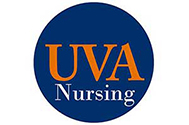
Program Details:
The University of Virginia offers six different BSN to NP programs and is considered one of the best BSN to MSN Nurse Practitioner programs. The programs offered are: adult-gerontology acute care, family, neonatal, pediatric primary care, pediatric acute care and psychiatric mental health. Each program requires either 500 or 600 clinical hours.Each of these NP programs comes with two or three-year study plans and all programs are ranked by the U.S. News and World Report 2023.
Admission Requirements:
Active RN license, 1 year of RN experience, and three professional recommendations. You must also complete statistics within 5 years of application.5. New York University Rory Meyers College of Nursing - New York, NY
Specialties Offered:
Adult-Gerontology Acute Care NP, Adult-Gerontology Primary Care NP, Family NP, Pediatrics NP Primary Care, Pediatrics NP Primary Care/Acute Care, and Psychiatric-Mental Health NP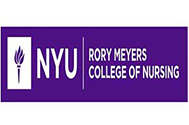
Program Details:
New York University Rory Meyers College of Nursing offers a wide variety of BSN to NP programs including adult-gerontology acute care and primary care, pediatrics, and psychiatric-mental health. The adult-gerontology acute care, adult-gerontology primary care, pediatric primary/acute care, and psychiatric mental health NP programs are 51 credit hours. The FNP program is 54 credit hours and the pediatric primary care NP program is 39 credit hours.The programs do incorporate simulation experiences to enhance learning when appropriate. Clinical placement is also determined by faculty which helps ensure placement and excellent learning opportunities.
Admission Requirements:
Graduate from an accredited BSN program with a minimum 3.0 GPA. You must hold an active New York State RN license, 1 year of RN experience, and completion of a college statistics course. If you are pursuing a pediatric specialty, you must also have a current PALS certification.What are the 5 Best On-Campus DNP Programs to Transition From BSN to Nurse Practitioner?
Below you will find the 5 best on-campus BSN to DNP programs to transition from BSN to nurse practitioner.1. Columbia University - New York, NY
Specialties Offered:
Adult-Gerontology Acute Care Nurse Practitioner (AG-ACNP), Adult-Gerontology Primary Care Nurse Practitioner (AG-PCNP), Family Nurse Practitioner (FNP), Pediatric Primary Care Nurse Practitioner (PNP), and Psychiatric Mental Health Nurse Practitioner (PMH)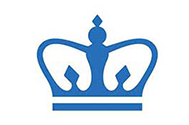
Program Details:
Columbia University is located in New York City and offers a variety of BSN to NP programs including some of the best BSN to DNP nurse practitioner programs. The adult-gerontology acute care NP and FNP programs require 85-88 credit hours. The adult-gerontology primary care and pediatric primary care programs require 82-83 credit hours. The psychiatric mental health NP program is 84-94 credit hours.The hours vary based on the courses selected to complete the degree and each program will take approximately 2 years to complete.
Admission Requirements:
BSN or MSN degree and an active NY state RN license. You must also complete statistics and a health/physical assessment course before starting the program. The adult gerontology acute care program also requires 1 year of RN experience in the acute care setting by the start of the program.2. University of Pittsburgh - Pittsburgh, PA
Specialties Offered:
Adult-Gerontology Acute Care Nurse Practitioner, Adult-Gerontology Primary Care Nurse Practitioner, Family (Individual Across the Lifespan) Nurse Practitioner, Neonatal Nurse Practitioner, Pediatric Primary Care Nurse Practitioner, and Psychiatric Mental Health Nurse Practitioner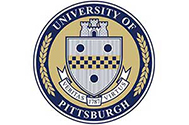
Program Details:
University of Pittsburgh offers six different NP programs. Each program varies in credit hours ranging from 79 credit hours (adult-gerontology acute care) to 93 credit hours (neonatal) based on the requirements of the program.Each program is delivered in an on-site format only and there are part-time and full-time study options.
Admission Requirements:
Graduation from an accredited BSN program with a minimum of 3.0 GPA and official transcripts sent. GRE must be completed and scores sent to the school. Three letters of recommendation, an essay, and a letter with clinical experience. You must also have an active RN license and must have completed a statistics course. Additionally, the Neonatal NP program specifically requires 2 years of experience (in the last 5 years) in caring for critically ill children in the inpatient setting, preferably a NICU.3. University of Minnesota - Minneapolis, MN
Specialties Offered:
Adult Gerontological Primary Care Nurse Practitioner, Family Nurse Practitioner, Pediatric Nurse Practitioner Primary Care, Psychiatric/Mental Health Nurse Practitioner, and Women's Health/Gender-Related Nurse Practitioner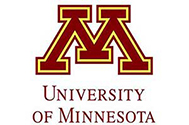
Program Details:
University of Minnesota offers many BSN to NP programs including some of the best BSN to DNP nurse practitioner programs. The adult-gerontology primary care NP program is 78 credit hours and the FNP program is 80 credit hours. The pediatric primary care program is 70 credit hours, and the psychiatric mental health NP program is 81 credit hours. Lastly, the women’s health/gender-related NP program is 77 credit hours.Each program takes three years if attended full-time and requires 1000 clinical hours. The program is delivered on-campus 4 days a week.
Admission Requirements:
You must send your official transcripts from all undergraduate and graduate (if applicable) coursework, official GRE scores, and current resume. You must also include three letters of professional recommendation and a personal essay which should include specifics such as your philosophy of nursing, expectations from the DNP program, and career goals.You must also have the following to be considered for acceptance to the BSN to DNP program.
• Current RN license
• Minimum GPA of 3.0 in BSN accredited program
• Competitive GRE score
• A “B” or better in the prerequisites required
• Clinical experience for those pursuing a career as a neonatal NP. The equivalent of two years full-time experience (within the last five years) as a nurse caring for critically ill children/neonates in a NICU.
4. The Ohio State University - Columbus, OH
Specialties Offered:
Adult-Gerontology Acute Care Nurse Practitioner, Primary Care Pediatric Nurse Practitioner, Adult-Gerontology Primary Care Nurse Practitioner, Acute Care Pediatric Nurse Practitioner, and Women’s Health Nurse Practitioner
Program Details:
The Ohio State University offers a variety of BSN to NP programs that are considered some of BSN to DNP Nurse Practitioner programs in the United States. The adult-gerontology acute care NP program is 75 credit hours and the pediatric primary care NP program is 81 credit hours. The adult-gerontology primary care NP program is 74 credit hours and the pediatric acute care Np program is 84 credit hours. The women’s health NP program is 83 credit hours.Each program can be completed within 4 years as a full-time student.
Admission Requirements:
Graduation from an accredited BSN program with a minimum GPA of 3.0. Active RN license, goal statement, three letters of recommendation, and a recorded online video interview.5. Rutgers, The State University of New Jersey - Newark, NJ
Specialties Offered:
Adult-Gerontology Acute Care Nurse Practitioner, Adult-Gerontology Primary Care NYurse Practitioner, Family Nurse Practitioner, Family Nurse Practitioner in Emergency Care, Pediatric Primary Care Nurse Practitioner, Dual Pediatric Primary/Acute Care Nurse Practitioner, Psychiatric-Mental Health Nurse Practitioner, Women’s Health Nurse Practitioner, and Dual Women’s Health/Nurse Midwifery
Program Details:
Rutgers offers many BSN to NP programs including those that focus on both the adult and pediatric patient—and offers one of the first programs to prepare APRNs in emergent and urgent care.The adult-gerontology acute care NP, family NP and pediatric primary care NP programs are 75 credit hours, the adult-gerontology primary care NP program is 69 credit hours and the women’s health NP program is 72 credit hours. The dual pediatric primary and acute care NP program is 85 credit hours, the family NP in emergency care is 81 credit hours, the dual women’s health/nurse-midwifery is 82 credit hours and lastly, the psychiatric-mental health NP program is 78 credit hours.
Each program offers 4 and 5-year study plans. With all these BSN to DNP programs, there are a required number of clinical hours for each specialty along with DNP project experience hours.
Admission Requirements:
Graduation from an accredited BSN program with a minimum GPA of 3.2 and official transcripts sent to school. Must also include a personal statement, resume, 2 scholarly papers where you are the main author, and two letters of reference. You must also hold an active RN license.What Starting Salary Can You Expect After Transitioning From BSN to NP?
An NP's average starting salary after transitioning from their BSN degree is $79,470. This number is influenced by multiple factors, including years of experience working as a BSN-prepared nurse, the organization worked for, and the specialty pursued. Working urban vs. rural may also influence starting salary for the NP.
| Hourly | $38.21 |
| Weekly | $1,528 |
| Monthly | $6,620 |
| Annual | $79,470 |
| (Source: U.S. Bureau of Labor Statistics) | |
What Average Salary Can You Expect After Transitioning From BSN to NP?
The average annual salary of an NP after transitioning from a BSN program is $118,040. This number can be influenced by where you work such as a large organization or private practice. Working part-time vs. full-time may also influence salary along with working in a rural vs. urban setting.
| Hourly | $56.75 |
| Weekly | $2,270 |
| Monthly | $9,840 |
| Annual | $118,040 |
| (Source: U.S. Bureau of Labor Statistics) | |
Bonus! 3 Expert Tips to Help Make Your Transition From BSN to Nurse Practitioner Smooth
1. Obtain a minimum of 1 year of RN experience before applying
2. Maximize time spent in clinical which can be done by working with different preceptors (if possible), asking questions, and getting as many experiences as possible
3. Identify resources you can use to ensure you are practicing evidence based medicine—ie. UptoDate, Epocrates, etc.
My Final Thoughts
As stated in the beginning, nurse practitioners play a significant role in delivering healthcare to people across their lifespans. After reading the above, I hope you can answer the question, how do you go from BSN to NP? I have provided information on how to transition from BSN to nurse practitioner as well as details about the 20 best programs to transition from BSN to nurse practitioner, but if these are not a good fit, please know there are many more options available to help you pursue your dream of becoming an NP!
Frequently Asked Questions Answered by Our Expert
1. Do I Need A BSN To Become A Nurse Practitioner?
Yes. You must have your BSN to apply to a nurse practitioner program.2. Is A DNP Really Required To Transition From BSN To NP?
No. You do not need a DNP to transition from a BSN degree to becoming an NP. In most organizations, an MSN is sufficient to practice as an NP. However, if you desire to work in education or research, a DNP would be required at that time.3. What Is The Quickest Way To Transition From BSN To NP?
The quickest way to transition from a BSN to NP is to attend an MSN program directly after graduating from a BSN program and passing the NCLEX.4. When Should I Choose My NP Specialization While Transitioning From BSN To NP?
You will have to choose your NP specialty before you apply to NP school—as this will determine which program you will select and complete.5. How To Know Which NP Specialization To Choose When Transitioning From BSN To NP?
There are a lot of NP specialties to choose from, and you must select one when applying to NP school. I recommend choosing the specialty/population you enjoy most working with or have the most interest in as it will be the population/specialty you work with throughout your career. Once you choose your specialty, be sure to gain experience as a nurse in the area if you have not done so already.6. How Much Experience Should A BSN Nurse Have Before Becoming A Nurse Practitioner?
I recommend a minimum of 1-2 years of experience as a BSN nurse before becoming an NP. However, many NP programs will accept students who just graduated with their BSN degree, expecting to gain experience as a nurse while in graduate school.7. Can I Work As A BSN-Prepared Nurse And NP At The Same Time?
In most states, you can simultaneously work as a BSN-prepared nurse and an NP. You must be careful to ensure that you are practicing within your scope when working in a BSN position. For specific information, visit your state board of nursing.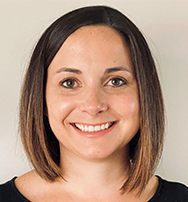 Kasee Wiesen DNP, APRN, FNP-C
Kasee Wiesen DNP, APRN, FNP-C
Kasee Wiesen is a practicing family nurse practitioner. Her nursing background includes emergency medicine, pediatrics and peri-op. Education is a passion of Kasee’s, and she has taught BSN, RN-BSN and DNP students, and has enjoyed every moment of it!